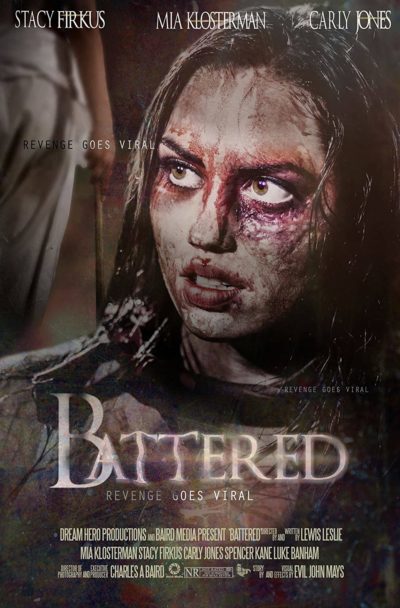★★
“Not as sharp as I hoped.”
 This takes place in early 15th century China, when Zhu Di (Zhang) had taken over the throne from his nephew, Wen Du (also played by Zhang), forcing the latter to go into hiding. Zhu is protected by his all-female Imperial Guard, under the leadership of Qing Lian (Xu). Actually, all seven of them have the surname Qing, which confused the heck out of me at first. But it actually makes sense, as they were taken in as babies, and brought up for the express purpose of protecting Zhu Di. Anyway, he gets word that Wen is to be found in a house of ill-repute, and send the Qings after him. Lian is injured in the raid, but her life is saved by Li Gexiao. When she returns to Zhu, however, he’s having none of it and orders her to kill Li, knowing he is actually the dethroned Emperor Wen. Lian opts not to carry out the emperor’s orders, and so the remaining Imperial Guard sisters are sent out by Zhu, to make her pay for her disloyalty.
This takes place in early 15th century China, when Zhu Di (Zhang) had taken over the throne from his nephew, Wen Du (also played by Zhang), forcing the latter to go into hiding. Zhu is protected by his all-female Imperial Guard, under the leadership of Qing Lian (Xu). Actually, all seven of them have the surname Qing, which confused the heck out of me at first. But it actually makes sense, as they were taken in as babies, and brought up for the express purpose of protecting Zhu Di. Anyway, he gets word that Wen is to be found in a house of ill-repute, and send the Qings after him. Lian is injured in the raid, but her life is saved by Li Gexiao. When she returns to Zhu, however, he’s having none of it and orders her to kill Li, knowing he is actually the dethroned Emperor Wen. Lian opts not to carry out the emperor’s orders, and so the remaining Imperial Guard sisters are sent out by Zhu, to make her pay for her disloyalty.
As the still at the top shows, they certainly look the part, and are impressive when doing the slo-mo thing, marching around, clad all in black and with their capes flying behind them in the breeze. I also can’t complain about the overall production values to be found here. This looks like a reasonable amount of money was spent on it: period pieces are never cheap, and the costumes, buildings, etc. here look decent. However, this never manages to rise above the level of something you’d have on in the background as eye candy. Firstly, the action is not very good, with a style closer to the Western approach, of fast cuts that appear designed to conceal either a) the participants’ lack of skill, or b) that nothing particularly much is going on. Even in quantity it’s deficient, with large chunks where it’s too chatty. That’s if you can get past the opening narration, which left me feeling as if I should be taking notes for a history mid-term.
It doesn’t help that the other six Qing’s are pretty much interchangeable, with no real personalities to speak off, and only about three expressions between the lot of them. Despite the lengthy flashback to their training as kids, I never got much of a sense of sisterhood, which makes the final act kinda suspect. Not helping matters, and consigning it firmly to the “below average” category, is an ending which comes in the shape of another info-dump, then heading abruptly into the end credits, before even 65 minutes have passed. It thus feels less like a complete movie, than a pilot for a show on the Chinese equivalent of the CW. By which I mean, all style and precious little substance, beyond a romance that never manages to be more than lightly convincing. And like CW shows, it probably looks better in the trailer than the reality.
Dir: Wang Bin
Star: Xu Zilu, Zhang Dake. Hou Meng, Zhu Meixuan





 This is probably a good one and a half stars more than I expected, based on the synopsis and screen shots, which made it seem considerably more like porn with a minor wrestling subplot. Okay, it is not exactly fun for all the family, to put it
This is probably a good one and a half stars more than I expected, based on the synopsis and screen shots, which made it seem considerably more like porn with a minor wrestling subplot. Okay, it is not exactly fun for all the family, to put it  Rapace seems to be turning into a female version of Ryan Reynolds. By which I mean, it seems that hardly a month goes past without a new Netflix Original coming out starring her. Ryan had 6 Underground, Red Notice and The Adam Project. Noomi has given us
Rapace seems to be turning into a female version of Ryan Reynolds. By which I mean, it seems that hardly a month goes past without a new Netflix Original coming out starring her. Ryan had 6 Underground, Red Notice and The Adam Project. Noomi has given us  This one is slightly unusual among action-heroine films, in that it was both written and directed by women: Kirsten Elms and Kari Skogland respectively. Unfortunately, it’s not exactly an advert for their gender; after a brisk start, it falls apart, and becomes a ridiculously implausible movie, in a completely different genre from where it started. That’s a real pity, because where it started, had a lot more potential than where it ends up. It begins with Sage Rion (Manning), a young but highly-talented thief, taking a bet with her partner, as to who can boost a classic car quickest. She picks a 1966 Dodge Challenger, but inadvertently leaves her ID at the scene of the crime.
This one is slightly unusual among action-heroine films, in that it was both written and directed by women: Kirsten Elms and Kari Skogland respectively. Unfortunately, it’s not exactly an advert for their gender; after a brisk start, it falls apart, and becomes a ridiculously implausible movie, in a completely different genre from where it started. That’s a real pity, because where it started, had a lot more potential than where it ends up. It begins with Sage Rion (Manning), a young but highly-talented thief, taking a bet with her partner, as to who can boost a classic car quickest. She picks a 1966 Dodge Challenger, but inadvertently leaves her ID at the scene of the crime. My first surprise here was that this clocks in at a crisp 44 minutes. That’s an awkward length for any film: too short to be a feature, but most festivals that accept short films will balk at a submission of that length, when the time could instead be used to accept three x 15-minute entries [as someone who runs a festival, this is definitely a consideration]. Quite how this got distribution, I’m therefore not sure; but there it was, sitting on Amazon Prime. However, less than two minutes into the viewing experience, I found myself thanking my stars the running time was so brief. Because this is hamstrung by the worst audio I’ve seen on any film in several years. When even an envelope being opened sounds like a burst of automatic gunfire, you’ve got a problem, and there’s hardly a scene here where this aspect is not bad enough, as to be an unbearable distraction.
My first surprise here was that this clocks in at a crisp 44 minutes. That’s an awkward length for any film: too short to be a feature, but most festivals that accept short films will balk at a submission of that length, when the time could instead be used to accept three x 15-minute entries [as someone who runs a festival, this is definitely a consideration]. Quite how this got distribution, I’m therefore not sure; but there it was, sitting on Amazon Prime. However, less than two minutes into the viewing experience, I found myself thanking my stars the running time was so brief. Because this is hamstrung by the worst audio I’ve seen on any film in several years. When even an envelope being opened sounds like a burst of automatic gunfire, you’ve got a problem, and there’s hardly a scene here where this aspect is not bad enough, as to be an unbearable distraction. I will say, I did actually enjoy this rather more than the rating above indicates. For pure entertainment value, it’s a 3 to 3½-star entity, when watched as a brutal parody of new feminism. The problem is, I don’t think those involved with it were making a parody. As a serious statement about gender, it’s almost impossible to take seriously. Alexandra Nelson (Cotter) is at the end of her tether, when she gets a call that her long-estranged mother is dying. Driving home to pick up the body, she finds it being hustled out the back of the crematorium. Turns out to be part of an organ harvesting scheme, run by the local crime bosses. This gives Alex something to live for, and she begins a one-woman campaign to take down the perpetrators. But that’s a mission which will drag in her estranged sister, bikini barista Jenny (Gately), into peril as Alex’s targets respond to her actions.
I will say, I did actually enjoy this rather more than the rating above indicates. For pure entertainment value, it’s a 3 to 3½-star entity, when watched as a brutal parody of new feminism. The problem is, I don’t think those involved with it were making a parody. As a serious statement about gender, it’s almost impossible to take seriously. Alexandra Nelson (Cotter) is at the end of her tether, when she gets a call that her long-estranged mother is dying. Driving home to pick up the body, she finds it being hustled out the back of the crematorium. Turns out to be part of an organ harvesting scheme, run by the local crime bosses. This gives Alex something to live for, and she begins a one-woman campaign to take down the perpetrators. But that’s a mission which will drag in her estranged sister, bikini barista Jenny (Gately), into peril as Alex’s targets respond to her actions. It’s probably significant that the opening credits of the film talk about the bands and the whiskey company involved. Any mention of the actual actresses taking part, is relegated to a secondary sequence, 15 minutes into the film. That seems to indicate where the priorities lie: if you told me the whole thing was made up to get freebies and as a showcase for the director’s mates, I’d have no problem believing you. Another warning sign is the way every post-production visual trick you can imagine is thrown in there; this often indicates an attempt to paper over flaws in other areas. There’s no doubt the film is certainly trying. However, Bizarro simply tries far too hard, and it’s not long before it becomes simply trying on the viewer instead.
It’s probably significant that the opening credits of the film talk about the bands and the whiskey company involved. Any mention of the actual actresses taking part, is relegated to a secondary sequence, 15 minutes into the film. That seems to indicate where the priorities lie: if you told me the whole thing was made up to get freebies and as a showcase for the director’s mates, I’d have no problem believing you. Another warning sign is the way every post-production visual trick you can imagine is thrown in there; this often indicates an attempt to paper over flaws in other areas. There’s no doubt the film is certainly trying. However, Bizarro simply tries far too hard, and it’s not long before it becomes simply trying on the viewer instead. No-one does low-budget hyperviolence like the Japanese. Whether it’s pseudo-snuff like Guinea Pig: Flower of Flesh and Blood, or more fantastical entries such as
No-one does low-budget hyperviolence like the Japanese. Whether it’s pseudo-snuff like Guinea Pig: Flower of Flesh and Blood, or more fantastical entries such as  Halle Berry was born the same year I was. There is, however, just one of us that is capable of convincingly playing the role of a mixed martial artist. To give you another yardstick, the lead in this was originally going to go to Mrs. Ryan Reynolds, Blake Lively (
Halle Berry was born the same year I was. There is, however, just one of us that is capable of convincingly playing the role of a mixed martial artist. To give you another yardstick, the lead in this was originally going to go to Mrs. Ryan Reynolds, Blake Lively ( It’s difficult to put a finger on exactly what makes this so flat and uninteresting. The individual elements are fine – or, at least, don’t stand out as being particularly troublesome. However, the end product failed to hold my attention, particularly over the second half. It may be a case of the whole being considerably less than the sum of the parts, though if there was a single factor, I’d have to point at the story. This is probably too complicated for its own good, especially in a 90-minute movie: less would likely have been more.
It’s difficult to put a finger on exactly what makes this so flat and uninteresting. The individual elements are fine – or, at least, don’t stand out as being particularly troublesome. However, the end product failed to hold my attention, particularly over the second half. It may be a case of the whole being considerably less than the sum of the parts, though if there was a single factor, I’d have to point at the story. This is probably too complicated for its own good, especially in a 90-minute movie: less would likely have been more.